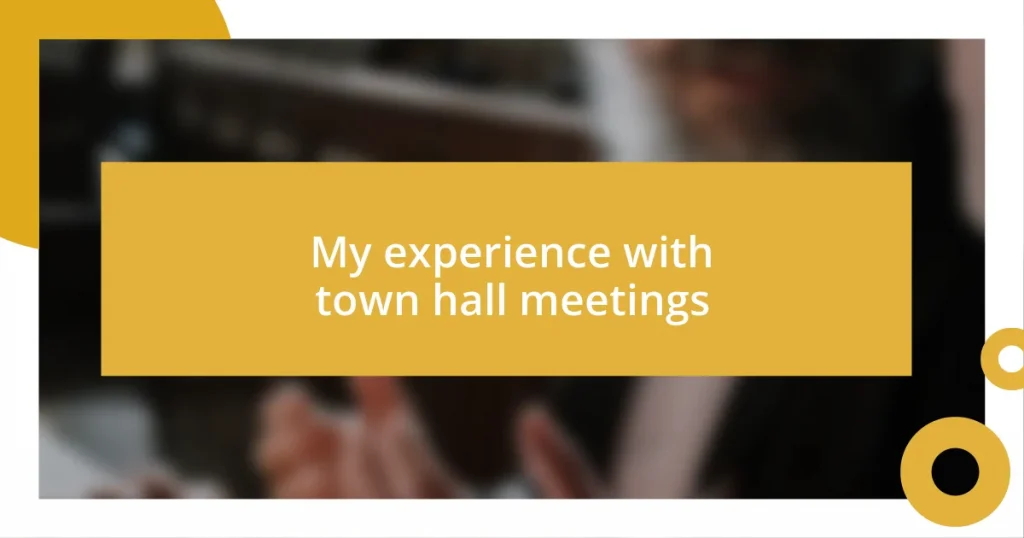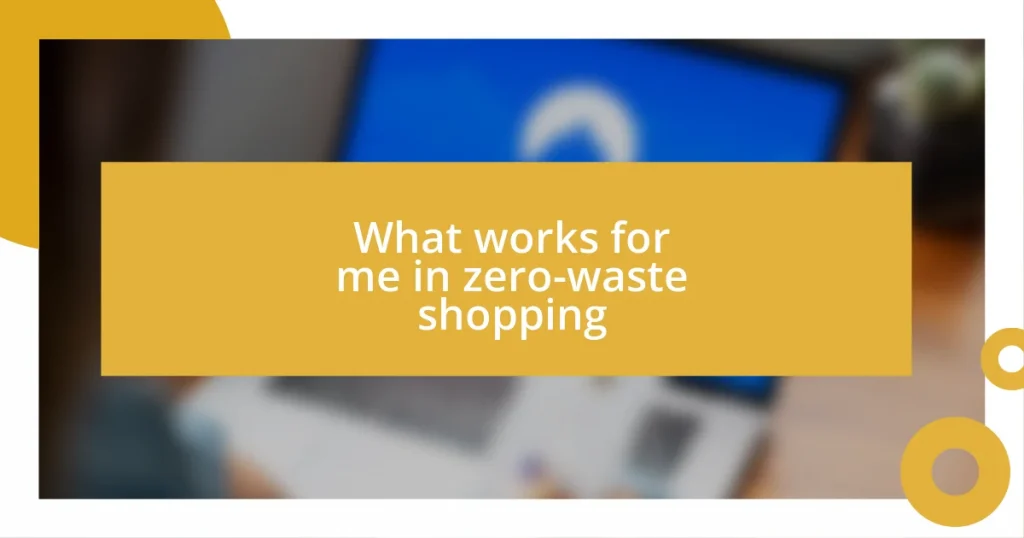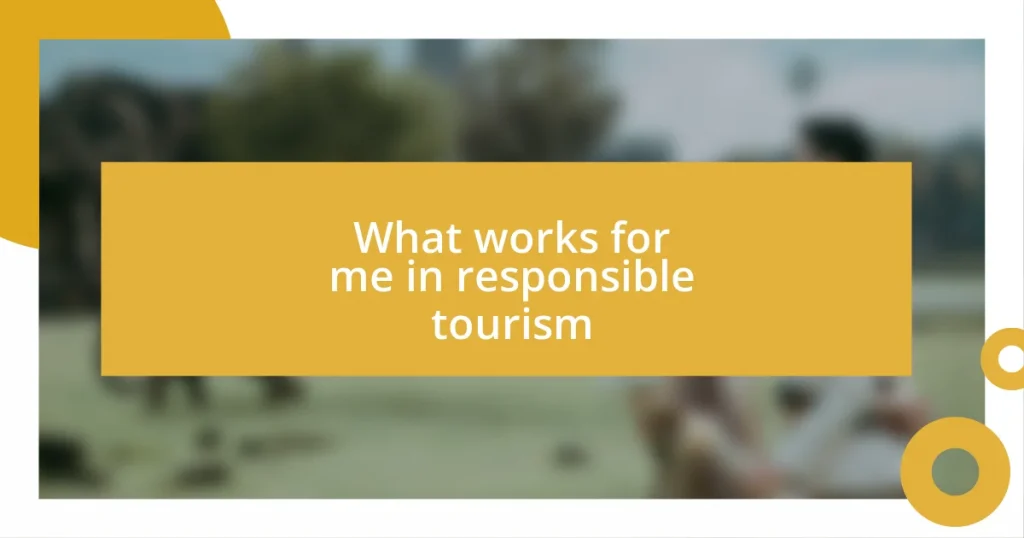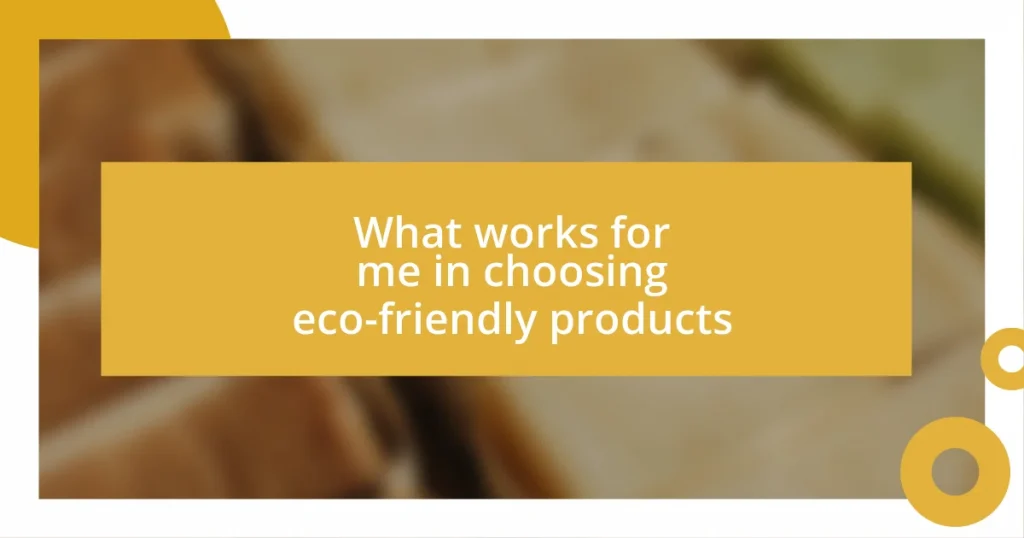Key takeaways:
- Town hall meetings foster community engagement by allowing residents to voice concerns, share ideas, and build trust with local officials.
- Asking thoughtful questions during meetings can transform passive attendance into active participation, driving meaningful discussions and accountability.
- Following up after meetings with summaries and forming supportive networks enhances the impact of community voices and helps sustain ongoing dialogue.
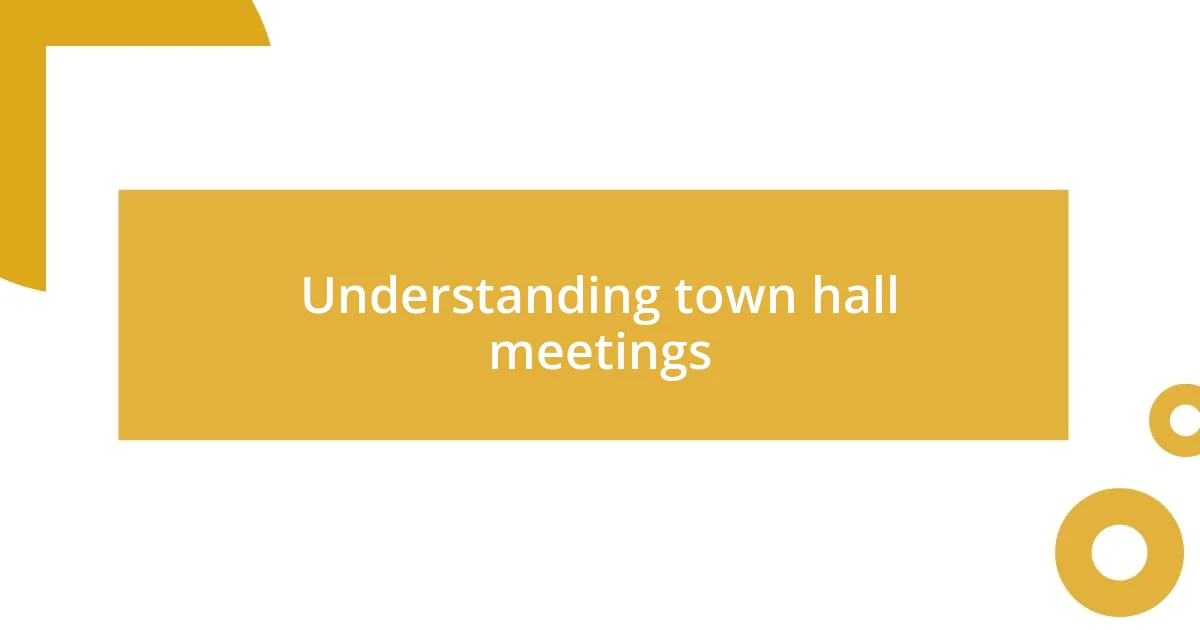
Understanding town hall meetings
Town hall meetings serve as an essential platform for community engagement, allowing residents to voice their concerns directly to local officials. I can still remember my first experience when I attended a meeting in my neighborhood. The energy was palpable; it felt like everyone was truly invested in shaping our community’s future. Could there be a better way to foster that sense of connection and accountability?
Attending these meetings often reveals the diversity of perspectives present in any community. I once heard an elderly neighbor passionately discuss how the lack of sidewalks affected her daily walks, a concern I had never considered. It struck me how these sessions can illuminate issues that might otherwise go unnoticed, prompting all of us to think more broadly about our shared environment.
Ultimately, town hall meetings are more than just formalities; they’re a lived experience where emotions run high, and voices of the community come together. I’ve seen people bring their children along, which adds a heartwarming touch, as they engage in discussions about our town’s future. This isn’t just a meeting; it’s a powerful reminder that we all have a role to play in community life, don’t you think?
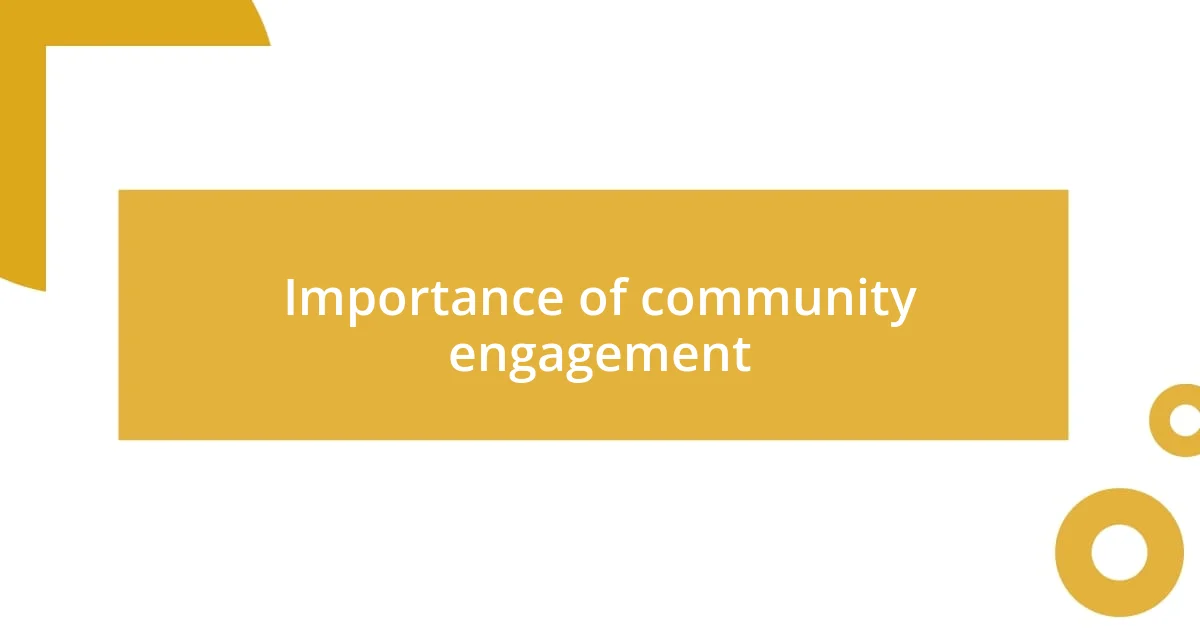
Importance of community engagement
Community engagement is crucial for fostering a sense of belonging and ownership among residents. I remember a particularly impactful moment during a meeting where a local artist shared her vision for a public mural. Her passion not only sparked excitement but also brought forward residents who had ideas of their own. This felt like a collaborative effort, showcasing how engagement can transform individual voices into a collective vision.
The importance of community engagement also lies in its ability to build trust between residents and local officials. I once witnessed a council member take the time to respond thoughtfully to a heated concern about safety in our neighborhood. That moment demonstrated to me that genuine dialogue can bridge gaps and alleviate frustrations, allowing for a more unified community moving forward.
Moreover, these gatherings encourage transparency about local issues and decision-making processes. During one session, I was surprised to learn about budget allocations impacting local parks. It became evident that when community members are involved, they are better equipped to contribute and advocate for solutions that matter to them. This type of engagement can truly empower a community to work collaboratively towards common goals.
| Aspect | Effect |
|---|---|
| Voicing Concerns | Encourages community members to express their needs and priorities. |
| Building Trust | Strengthens relationships between residents and officials. |
| Informed Decision Making | Helps residents understand and influence local governance. |
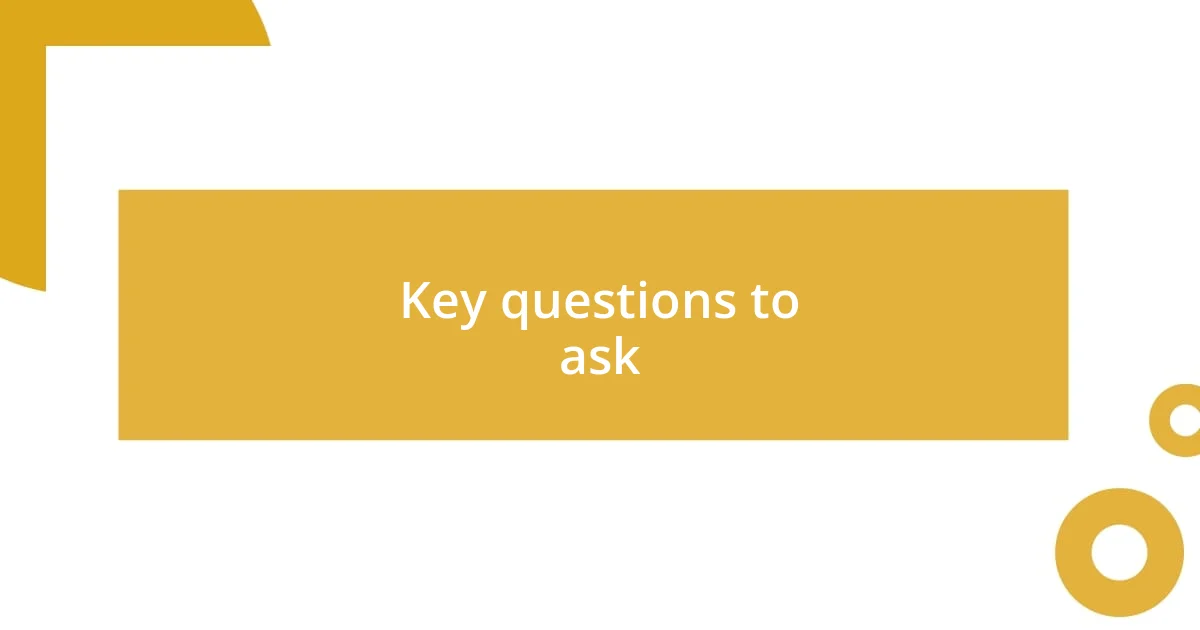
Key questions to ask
When you’re at a town hall meeting, it’s crucial to ask the right questions to clarify issues and protect your interests. In my experience, a well-placed question can shift the discussion entirely. I remember a session where I simply inquired about the timeline for a proposed community park. The response not only informed me but also stirred a sense of urgency among other residents who shared my enthusiasm. It really highlighted how vital it is to engage through questions.
Here are some key questions to consider asking:
- What are the specific plans for this project, and when can we expect updates?
- How can residents stay informed about changes that affect our community?
- What measures are in place to address community concerns raised during previous meetings?
These types of questions can transform your role from a passive attendee to an active participant in shaping your community’s future. By asking thoughtful questions, you’re not only seeking clarity for yourself but also encouraging others to engage in meaningful dialogue.
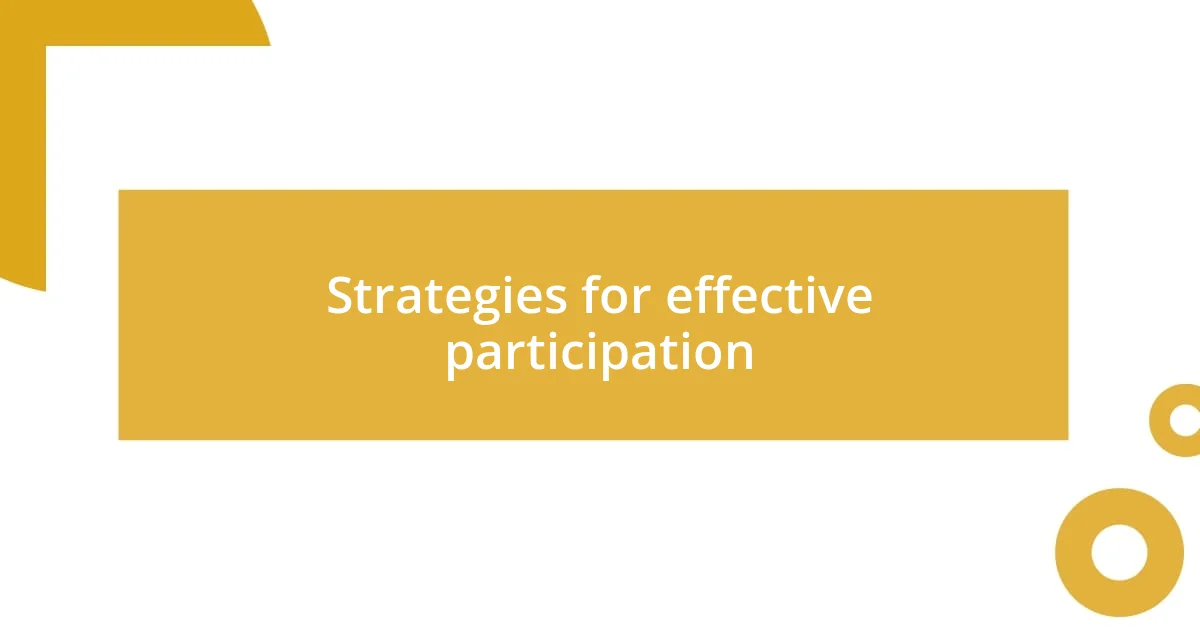
Strategies for effective participation
Effective participation at town hall meetings often requires a proactive mindset. I remember approaching one meeting with a small group of neighbors who shared similar concerns about traffic safety. As we united our voices, our shared passion gave us the confidence to speak up together, transforming our individual worries into a powerful collective appeal. Isn’t it fascinating how strength in numbers can amplify our concerns?
Another strategy is to come prepared with notes and specific examples. During a recent meeting, I presented data about pedestrian accidents at a particular intersection. Having those facts on hand not only supported my points but also sparked a productive discussion among residents and officials. It made me realize that preparation can significantly enhance our contributions and ensure that our concerns are taken seriously.
Lastly, don’t underestimate the impact of follow-up after the meeting. Once, I took the initiative to reach out to local officials with additional suggestions based on our discussion. I was surprised by how receptive they were! This experience reinforced the notion that participation shouldn’t stop at the meeting; ongoing engagement can create lasting change in our communities. Have you ever thought about how your voice could continue to make waves even after the meeting ends?
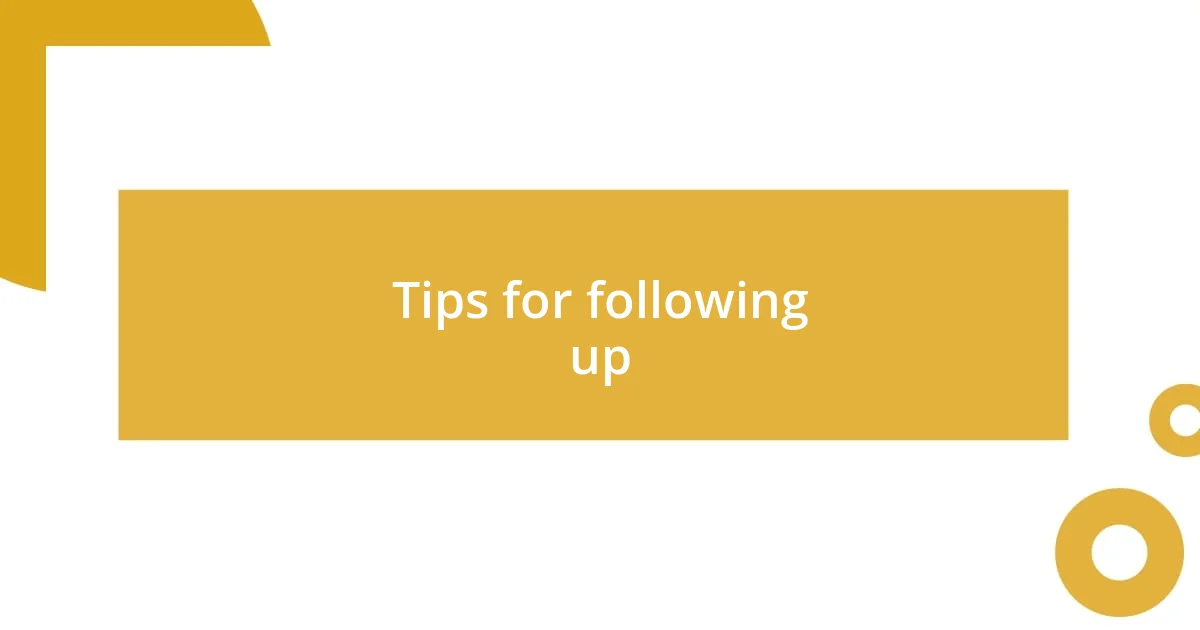
Tips for following up
Following up after a town hall meeting can be a game-changer for your concerns and suggestions. I recall reaching out to a council member a week later, sharing my thoughts about an initiative on affordable housing. It felt great to initiate a dialogue that went beyond the meeting context. In essence, following up helps reinforce your presence and shows that you genuinely care about the outcomes.
An effective strategy I’ve employed is to summarize the key points you discussed in the meeting when you follow up. Once, I crafted an email outlining concerns about public transportation, citing specific examples from our discussion. I included a few quotes from other residents, which not only bolstered my case but also demonstrated community support for the issues raised. Did you ever think about how a well-documented follow-up can amplify the voices of many?
Don’t hesitate to create a supportive network with other attendees for follow-ups. After one meeting, I joined forces with several neighbors and formed a small group to keep the conversations alive. Together, we brainstormed additional questions and concerns, and our combined efforts were far more impactful than any of us could have achieved alone. It highlighted for me the power of community when we all commit to staying engaged.










